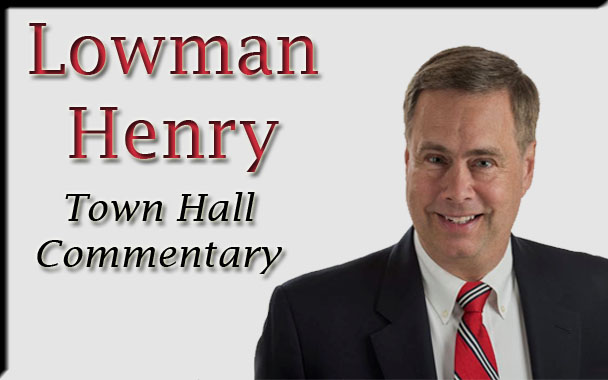Tom Wolf, Bill Murray & Groundhog Day

It is entirely appropriate that Governor Tom Wolf’s annual budget address to a joint session of the Pennsylvania legislature happens on or near Groundhog Day. Residents of Penn’s Woods must feel a bit like Bill Murray in the famous film set in Punxsutawney on Groundhog Day, who finds himself in a time loop repeatedly living over and over the events of that day.
Again this year, as he has for his past six years as governor, Wolf has outlined a list of priorities clearly destined for failure. He wants a severance tax on the state’s natural gas industry; he wants to legalize – and tax – recreational marijuana; he wants an increase in the minimum wage; and, of course, he wants to dramatically increase state spending.
Cue the band and the furry rodent; we’ve seen this act many times before. In this, the seventh and next-to-last year of his governorship, Wolf is playing the same old song which will end on the same note.
If ever there was a year for Wolf to change his tune this would be it. His administration has botched handling every aspect of the COVID-19 pandemic. His focus should be on administration of the vaccine which he himself admits is lagging.
The commonwealth’s budget suffered from a massive structural deficit even before the pandemic dramatically impacted state revenue. Last November lawmakers utilized federal funds to paper over the state’s budget deficit. But, lacking a federal bail-out, balancing the 2021-22 budget will be next to impossible.
A prudent course of action would have been to rein in spending. Not only has that not happened, but the governor has again overspent his legislatively-authorized budget leaving the General Assembly with an even more insurmountable deficit headed into the new fiscal year. Worse, Wolf continues to call for new and increased spending and is enthusiastic in proposing additional ways to scoop up taxpayer dollars.
This lack of fiscal restraint has renewed calls for immediate passage of the Taxpayer Protection Act. To prevent future General Assemblies from repealing the act, a Taxpayer Protection Amendment needs to be added to the state constitution. That process, which requires passage of a proposed amendment in two consecutive sessions of the legislature and then approval by voters in a statewide referendum, is the ultimate long-term solution.
The proposed Taxpayer Protection Act (TPA) would curb spending growth by limiting it to a three year combined average of the inflation rate and population growth. Note it does not impose spending cuts, it limits future spending increases. The spending cap can be exceeded if approved by a supermajority of both houses of the legislature allowing a pressure valve in the event of exigent circumstances.
According to the Commonwealth Foundation had the Taxpayer Protection Act been in effect for the current fiscal year state spending could have been increased by $716 million. Instead, state spending increased by more than $1.3 billion.
For historical perspective, had the TPA been enacted back in fiscal year 2003-04 spending increases to date would have been limited to $10 billion. Lacking TPA limits spending actually increased by almost $15 billion during that same time frame. Even adjusting for inflation, the Commonwealth Foundation reports state spending has more than tripled over the past 50 years.
A 2019 poll found 68% of Pennsylvania voters support the Taxpayer Protection Act. And that support cuts across partisan lines with 68% of Republicans, 67% of Democrats, and 67% of Independents agreeing that spending limits need to be placed on state government.
A record number of Pennsylvanians have been thrown out of work due to the COVID-19 pandemic; others have suffered significant declines in income. Despite the fact families are already struggling financially Governor Tom Wolf has turned a deaf ear and continues to push a fiscally irresponsible agenda.
State spending has been out of control for decades and the current system enables the fiscal abuse. It is time for state government to start living within the means of We the People. The Taxpayer Protection Act, and ultimately a Taxpayer Protection Amendment, would be a significant first step in that direction.
(Lowman S. Henry is Chairman & CEO of the Lincoln Institute and host of the weekly Lincoln Radio Journal and American Radio Journal. His e-mail address is [email protected].)
Permission to reprint is granted provided author and affiliation are cited.






